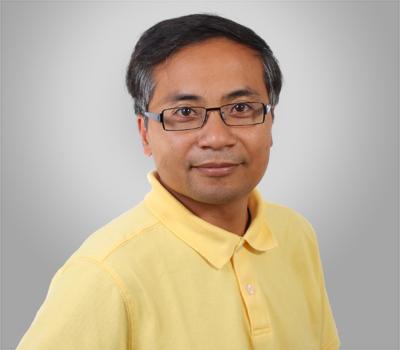
Thinh Nguyen’s escape to the US began with a solo swim to a small boat in the South China Sea. Born in Vietnam, his family chose to flee the communist regime which had blacklisted them because his father was a colonel for the fallen South Vietnam army.
With his father missing in action, Nguyen’s mother planned for her children’s future. As a literature teacher, she prized education and knew there would be few opportunities for her children if they stayed in Vietnam. So, by ones and twos they made attempts at freedom — not always making a clean get-away. Nguyen was bailed out of jail by his mother more than once before he made a successful swim to the boat that took him to Philippines.
A journey beyond most people’s imaging, he would not describe it as scary or even challenging. At thirteen years old, it was an adventure. “But tell me to do it again, and I would say, ‘No!’” he laughs. “Now I understand the consequences — one big wave and you’re gone.”
After nearly a year in a refugee camp, Nguyen joined his brother and sister in Seattle where he attended high school. His mother continued parenting from afar through letters, and eventually made it to the US when Nguyen was a sophomore in college at University of Washington. She brought with her his youngest brother, and Nguyen realized that he needed to be a breadwinner for the family. He switched from majoring in physics and math to get a degree in computer engineering which he thought would be more practical for finding a job.
Then, after working for Intel for three years, all of his family was fairly well settled and he felt he had the freedom to return to graduate school. His mother had instilled in him a love of science and so he looked for an area to study that would be largely theoretically driven, but had practical application. He settled on electrical engineering and specialized in signal processing, receiving his Ph.D. in electrical engineering and computer science at University of California, Berkeley.

would be a musician. He is a classical violinist and music
continues to be a big part of his life.
He describes his current work as under the umbrella of information representation, processing, and transmission. His areas of research, he says, can be illustrated with an example of watching a movie streamed to your TV: signal processing involves compressing the video so it can be sent in a smaller package; coding theory deals with reducing errors in the signal by including redundancy so lost data is not noticed by the viewer; and finally networking handles the communication between the sender and receiver, such as a Netflix server and your television, including how the information is routed.
His research in network coding theories and practices for transmission of multimedia information earned him the prestigious CAREER award from the National Science Foundation, given to the most promising investigators at the beginning of their careers. He has also been awarded several best paper awards for his work.
If he were not a professor he says he would be a musician. He is a classical violinist and music continues to be a big part of his life.
But family is most important. He says the proudest day in his life was his wedding day, and he loves watching his children grow and learn. He hopes to instill in them a love of science and music, but most importantly independence and self-reliance.
“Thinh is a great example of overcoming adversity to achieve success. His optimism and ability to work hard helped him survive, and it is also what makes him an exceptional teacher and researcher,” says Terri Fiez, former head of the School of Electrical Engineering and Computer Science.

